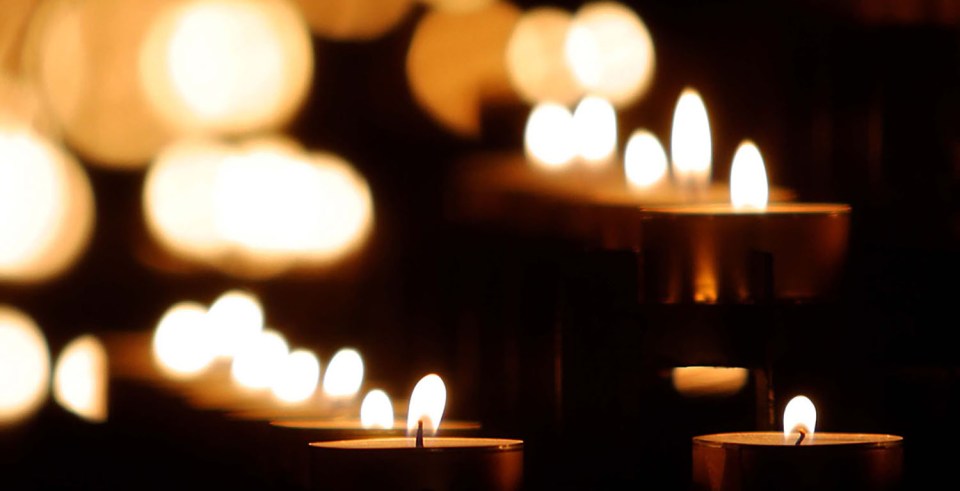The holidays are officially here and for most of us, the season represents all that is good about life. We get to enjoy quality time with loved ones as well as old friends; a mixture of reminiscing about years gone by and creating new memories. Then there is also the blessing of giving and receiving gifts.
But what if this is not the case for you this year? What if you have lost loved ones who were part of those cherished memories and are no longer here to create new ones? How are you supposed to approach what is declared as the happiest time of the year if you have grief in your heart and lost loved ones on your mind?
C.S. Lewis said, “No one ever told me that grief felt so much like fear.”
Those who are grieving can lose their desire to move forward with life, much like being paralyzed by fear. Their loss is a painful reminder; yet they can’t escape those dates on the calendar that are quickly approaching. There is no way to avoid them, and they are forced to move forward, whether they are ready or not.
Think about the constant holiday reminders that surround us. Television stations are airing holiday specials. Radio stations shift to Christmas music. Your mailbox starts to fill with Christmas cards. Every house in the neighborhood is decorated with lights, wreaths and reindeer. Everyone you meet is greeting you with some sort of holiday cheer. There is no escaping the holidays.
As much as we may want to bury our heads beneath the sheets and set a wake-up call for after the new year, we don’t have that luxury. Therefore, the bereaved are forced to answer the question: how can I face the dread of the holidays and find some sense of peace?
Think ahead and Formulate a Plan
Think about holiday traditions that you normally observe and how they may affect you, both positively and negatively. If you are typically the designated cook for the family get-together, ask yourself, “Am I up to that this year?” If not, then plan ahead and buy prepared items, or delegate cooking responsibilities to other family members.
Do you anticipate that extended time with the family may be more taxing than you can handle? Plan to drive separately and exit as you need, or ask someone else to host the family gathering so you are not forced into longer interactions than you can handle. Think ahead and try to figure out where you will need some relief.
Communicate Your Wishes
Talk to your loved ones if you feel the need to change some of your traditions. This gives you an opportunity to communicate how you are doing and what your needs look like this year. It can also be a chance for family members to discuss their collective grief and how the holidays are affecting them, too.
Talking about these things can be difficult, but it will benefit everyone involved to acknowledge the elephant in the room. It is already on everyone’s minds, so this allows critical conversations to take place with a goal of finding some resolutions together.
Consider Creating New Traditions
There are numerous ways to do this, but the emphasis should be on honoring your loved one. You could make a donation to charity in their honor, or cook their favorite food. You could also buy new decorations that remind you of them and use them as a conversation piece for the rest of the family.
This is not meant to be exhaustive, but rather to help you think about ways your loved one can stay with you as you move forward. The construct of a new tradition involving those we lost builds a bridge between our past and our future. It allows us to move ahead without losing touch with our past.
What if one of your new traditions is to volunteer? There are numerous charities that need help this time of year. There is no better solution to getting your mind off of our own circumstances than by helping others.
Whether it’s helping with a toy drive, serving food at a homeless shelter or offering to put up Christmas decorations for an elderly neighbor, there are many in need around us.
Utilize Bereavement Services
If your loved one received hospice care, then bereavement services are available to you and your family for up to 13 months after their passing as part of the hospice benefit of care. These services provide a specialized plan of care to help you through the bereavement journey.
Bereavement counselors and volunteers can plan personalized memorial services, provide grief counseling and also connect loved ones to resources, like support groups, to help them through the grieving process. These services can be especially helpful during the holiday season as you learn how to honor your loved one while moving forward.
In the midst of the holiday craziness, we can lose sight of the very reason we celebrate. As a fifth and final piece of advice, I encourage you to take a step back and consider the foundation of the holiday season. It is more than just gifts under a tree, eating all our favorite deserts or a vacation at grandma’s house for a few days.
May the remembrance of the true reason for the season provide peace, comfort and hope to the lonely and hurting this holiday season.
The content of this site is for informational purposes only and should not be taken as professional medical advice. Always seek the advice of your physician or other qualified healthcare provider with any questions you may have regarding any medical conditions or treatments.



